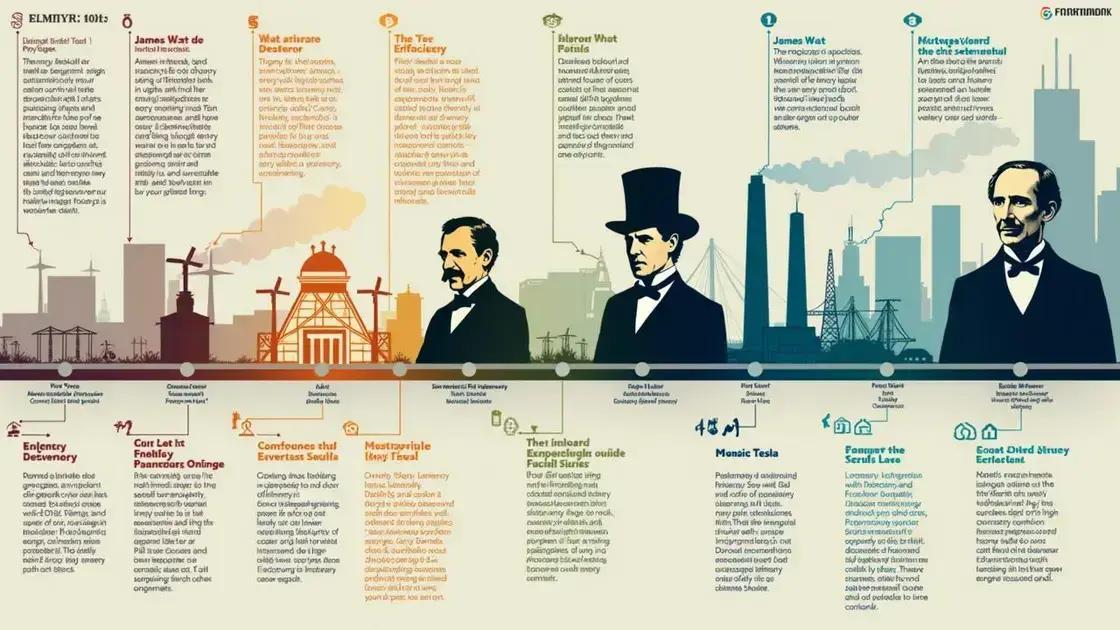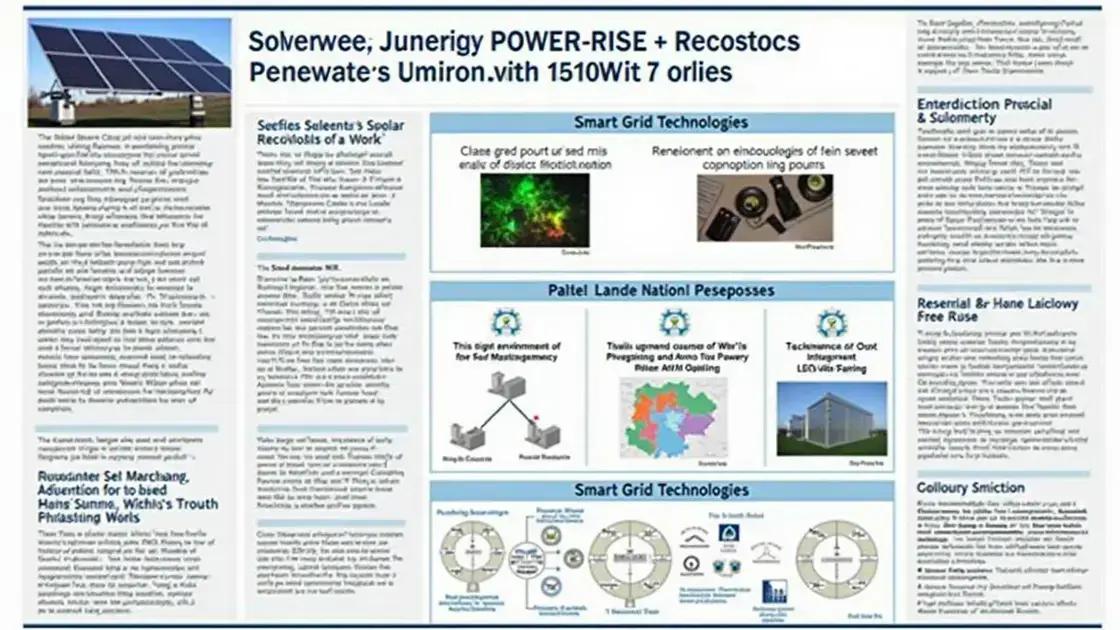POWER RISE refers to an increase in energy efficiency and output, significantly impacting our economy and environment. It encourages the adoption of renewable energy sources, reduces costs for consumers and businesses, and improves community well-being, making it a crucial focus for future sustainability efforts.
Have you ever wondered, “Is there scientific evidence for POWER RISE?” This intriguing question takes us into the depths of research and exploration. POWER RISE is a concept that sparks curiosity and debate among researchers and enthusiasts alike. In this article, we will delve into its various meanings, explore its historical context, review current scientific studies, and discuss the implications it may have on society. Prepare to uncover surprising insights!
Understanding POWER RISE

POWER RISE is a term that refers to an increase in energy output or efficiency, often seen in various scientific fields. Understanding this concept requires diving into its principles and implications. Our journey begins with recognizing how POWER RISE manifests in real-world applications.
What is POWER RISE?
At its core, POWER RISE involves maximizing energy potential. This phenomenon is often analyzed in physics, environmental science, and engineering. It shows how systems can harness energy more effectively, leading to greater productivity.
Key Factors Influencing POWER RISE
Several factors can influence POWER RISE. These include technological advancements, resource availability, and ecological impacts. For instance, improved technologies in renewable energy can significantly enhance POWER RISE, leading to cleaner and more efficient energy sources.
Real-World Applications
POWER RISE is evident in various fields such as renewable energy, transportation, and manufacturing. For example, solar panels that convert sunlight into electricity showcase POWER RISE by increasing output efficiency, reducing waste, and promoting sustainability. Electric vehicles also apply this concept by maximizing energy use for longer ranges.
Understanding POWER RISE helps scientists and engineers improve systems, create sustainable practices, and advance energy technology. Continued research and observation in this area are crucial for optimization and ecological balance.
Historical Context of POWER RISE

The historical context of POWER RISE dates back to key advancements in science and technology that shaped how we understand energy. Over the years, various scientists and researchers have contributed to this field, exploring ways to optimize energy usage.
Early Discoveries
In the 19th century, scientists like James Watt introduced steam engines, significantly boosting energy efficiency. This marked a turning point in industrial practices, where POWER RISE became a focal point for improving productivity.
The Rise of Electricity
The invention of the electric generator revolutionized energy distribution in the late 1800s. Innovators like Thomas Edison and Nikola Tesla played pivotal roles in increasing the efficiency of electrical systems, laying the groundwork for modern energy concepts including POWER RISE.
Post-War Innovations
Following World War II, technological advancements accelerated rapidly. The oil crisis of the 1970s led to new interest in renewable energy sources. This period saw significant research efforts into solar and wind power, further emphasizing the need for POWER RISE to achieve sustainability.
Modern Developments
Today, the context of POWER RISE continues to evolve. Recent advancements in nanotechnology, battery storage, and smart grid technology highlight our ongoing quest for more effective energy solutions. As society calls for sustainable practices, the historical journey of POWER RISE remains essential in guiding our future.
Current Scientific Studies

Current scientific studies on POWER RISE focus on understanding how energy efficiency can be improved in various systems. Researchers conduct experiments and analyses to test theories and measure outcomes.
Recent Research Findings
One study published in the Journal of Renewable Energy explores the efficiency of solar panels. Researchers found that new materials can significantly enhance energy conversion rates, demonstrating a clear example of POWER RISE in action.
Impact of Technology on POWER RISE
Another study highlights how smart grids optimize distributed energy resources. This research shows how technology can balance energy supply and demand effectively, leading to better overall energy use and supporting the idea of POWER RISE.
Environmental Considerations
Research also examines the environmental impact of various ENERGY sources. A recent paper from an environmental science journal discusses how renewable energies, such as wind and solar, not only provide cleaner options but also reveal advancements in POWER RISE.
Future Directions
Studies continue to emerge that assess energy storage technologies. For instance, improved battery technology can allow for greater energy retention, contributing to the concept of POWER RISE by ensuring that energy is available when needed.
Implications of POWER RISE on Society

The implications of POWER RISE on society are vast and varied. As energy efficiency improves, it affects numerous aspects of daily life, impacting our economy, environment, and community well-being.
Economic Benefits
One major implication is in the economy. Enhanced POWER RISE can lead to lower energy costs for consumers and businesses. By utilizing energy more efficiently, companies can save money, invest in innovation, and create jobs, which benefits the economy overall.
Environmental Impact
POWER RISE plays a crucial role in environmental sustainability. By optimizing energy use, we can reduce greenhouse gas emissions. This shift towards cleaner energy sources, such as solar and wind, helps combat climate change and preserves natural resources for future generations.
Social Changes
At a community level, increased energy efficiency can lead to improved quality of life. Access to affordable energy allows families to use essential services, such as heating, cooling, and lighting, without financial strain. Additionally, more efficient energy use can foster community development through better infrastructure.
Global Perspective
On a global scale, POWER RISE can help reduce dependence on fossil fuels, making countries less vulnerable to oil price fluctuations. This strategic shift fosters energy independence and promotes international cooperation toward sustainable practices.
In Conclusion: The Future of POWER RISE
Understanding POWER RISE offers valuable insights into the ongoing evolution of energy efficiency and its impact on our lives. With roots in historical innovations and bolstered by current scientific studies, this concept continues to shape our society.
The implications of POWER RISE stretch from economic growth to environmental sustainability. As we optimize energy use, we not only create a better quality of life for individuals and communities but also contribute to a healthier planet. The transition towards cleaner energy solutions holds promise for future generations, making POWER RISE a critical focus for researchers, policymakers, and businesses alike.
Ultimately, embracing and advancing the principles of POWER RISE can lead to transformative changes across the globe, promoting energy independence and efficiency in our ever-evolving world.
FAQ – Frequently Asked Questions About POWER RISE
What is POWER RISE?
POWER RISE refers to an increase in energy output or efficiency, often evaluated in scientific and technological contexts.
How does POWER RISE impact the economy?
By enhancing energy efficiency, POWER RISE can lead to lower energy costs for businesses and consumers, driving economic growth and job creation.
What are the environmental benefits of POWER RISE?
POWER RISE contributes to reducing greenhouse gas emissions and promoting the use of renewable energy sources, benefiting the environment and combating climate change.
How is POWER RISE relevant to modern technologies?
Current technologies, such as smart grids and energy-efficient appliances, exemplify the application of POWER RISE by optimizing energy use and distribution.
What are some current scientific studies about POWER RISE?
Recent studies focus on advancements in solar energy efficiency, smart grid technology, and energy storage systems that demonstrate the principles of POWER RISE.
How does POWER RISE affect community well-being?
By improving energy efficiency, POWER RISE helps families manage energy costs and supports the development of better infrastructure and services in communities.












